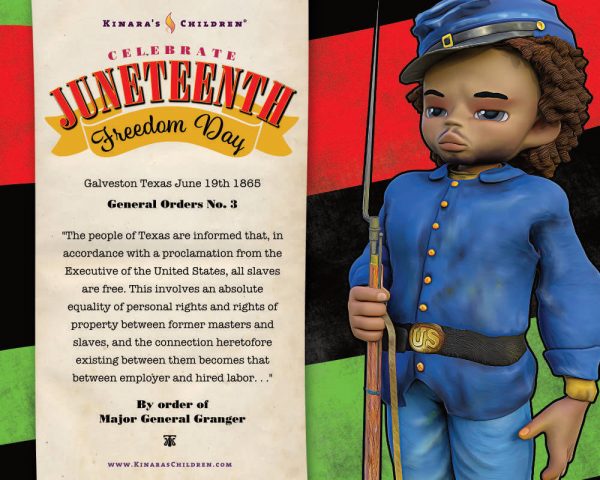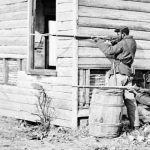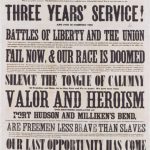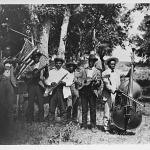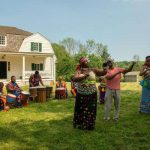General Order No. 3
Juneteenth is an African American holiday that has been celebrated since 1866. It commemorates the anniversary of the announcement of General Order No. 3 by Union Army general Gordon Granger proclaiming freedom for enslaved Africans in Galveston, Texas, the final state of the Confederacy to end slavery. The day has been recognised by various state and local governments since its inception and in June of 2021 it became a federal holiday. In order to understand Juneteenth it’s best to understand what proceeded it, specifically the Civil War.
The Civil War
On April 12-13, 1861 the United States was attacked at Fort Sumter in Charleston, South Carolina. The fort was bombarded for two days by the newly created Confederacy of southern states. The Civil War had formally begun. The war between the states is one of the most contested, studied, and brutal wars the United States has ever fought with some 600,000 souls lost in the conflict. In a nutshell the south fought in order to guarantee the continuation and expansion of slavery into newly acquired territories in what is now the western United States. The north fought to save the Union and maintain the power of the federal government. The war lasted for four years and ended when General Lee surrendered his Army of Northern Virginia on April 9, 1865 in Appomattox County, Virginia.
Free blacks enlisted as well enslaved blacks who had fled from their bondage and across the Union lines to freedom and resistance. It should always be noted that nearly 200,000 black men enlisted with the Union Army to be part of the US Colored Troops (USCT) who would finally be aided in taking their fight directly to their oppressor. By the end of the war they made up 10% of fighting forces. Black women also participated as recruiters, nurses, cooks, laundresses and even as spies during their enslavement on southern plantations. Best known of these woman warriors was Harriet Tubman herself. Also of note are the 2,000 black men who left the relative safety and freedom of their homes in Canada to travel to America and fight with their brethren for a common goal. They knew that their capture could mean a fate worse than death; enslavement. This is a great example of Ujima, Collective Work and Responsibility, a concept that existed in our community before Dr. Karenga codified it into Kwanzaa’s Nguzo Saba many years later.
During the conflict President Lincoln issued the Emancipation Proclamation of January 1, 1863. This freed enslaved Africans in the rebellious southern states of the Confederacy and set the stage for Freedom Day; Juneteenth. The Proclamation applied in the ten states that were still in rebellion in 1863, and thus did not cover the nearly 500,000 Africans in the slave-holding Union states (Missouri, Kentucky, Maryland or Delaware) that had not seceded. Those individuals were freed later by separate state and federal actions.
Juneteenth
On June 19, 1865 Union General Gordon Granger arrived in Galveston Texas and announced General Order No. 3 proclaiming freedom for enslaved people in the state. The Civil War had ended months earlier but Texas, being one of the most remote states in the Confederacy, had been slow to concede their defeat. It would be hard to imagine the joy felt by the now free black men, women and children to the reality that slavery had ended, but a year later, in 1866, that joy was expressed in the form of the first Juneteenth celebration in Galveston.
The tradition of Juneteenth was carried north by blacks escaping Jim Crow during the Great Migration. It quickly spread across the country to become a holiday celebrated by Black people regardless of where they lived. It’s celebrated in Mexico as well by the descendants of the Black Seminoles who have resided in Coahuila, Mexico, since 1852. Juneteenth is known as the oldest African American holiday still being celebrated.
A Juneteenth celebration may consist of barbecues, family reunions, historical reenactments, and music festivals. It is also a time to celebrate African and African American culture. Red food and drinks were were also traditions of early Juneteenth celebrations including red velvet cake and strawberry soda. Celebrations often include lectures and exhibitions of African and African American culture such as African Dance or political organizing and voter registration drives. Community leaders, parents, and educators have used Juneteenth to help instill heritage and pride in black youth and adults.
Legacy
The emancipation of enslaved Africans in the United States is an event of global significance. The Northern victory over the Confederate slave masters is part of a centuries long independence struggle waged by Africans throughout the world. To that extent it relates to the struggle against apartheid in South Africa, The Haitian Revolution, and other independence movements throughout Africa and the Americas. The Civil Rights struggle 100 years after emancipation shows that the struggle for actual freedom did not end in 1865, or 1965 for that matter.
I think the time between Memorial Day and Juneteenth I’ll now refer to as Juneteenth Season. It’s a good time to remember the brave Union soldiers, and specifically the US Colored Troops who volunteered and died in disproportionate numbers. Juneteenth is the remembrance of one sucessful battle in the 400 year struggle for black liberation that continues to this day.
